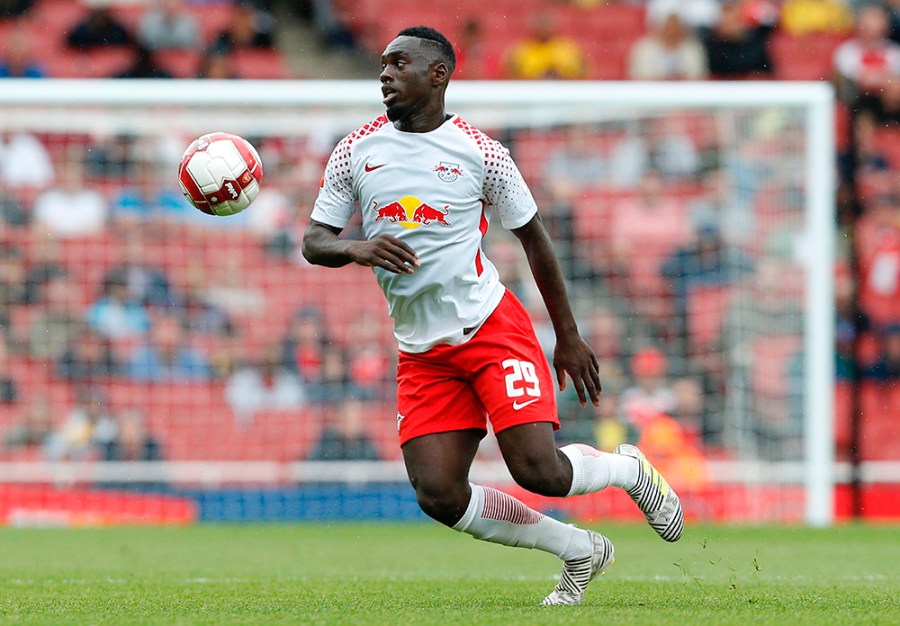It’s a great time to be young, talented and in the employ of a Bundesliga club. Whether homegrown or from overseas, fledgling footballers are all the rage. The sort of bankable currency everyone wants to trade in.
This summer (up until the end of July) almost of 70 per cent of new Bundesliga signings had 24 years or less on the clock and in marked contrast to the high rollers of the Premier League, the essence of the deal here is very much value-for-money, eschewing inflated fees and reputations in favour of potential and subsequent sell-on profits.
Only one of the ten biggest close season transfers – Wolfburg’s new Spanish midfielder Ignacio Camacho – did not involve a player in his early 20s, while RB Leipzig, Borussia Mönchengladbach and Cologne exclusively brought in players in the 17-24 age bracket. Senior citizens, don’t call us.
This more organic approach to recruitment comes easily to German club administrators. Long-term planning and an aversion to balance-sheet risk-taking are in the economic DNA in these parts. Splashing the cash on a veteran with a limited shelf-life simply is not seen as good business.
“We have to find players whom we can develop in both a sporting and financial sense,” says Gladbach director of sport Max Eberl, who not so long ago was being linked to a similar post at Bayern Munich. “We don’t have any alternative. When you have older pro with his contract running down and you can’t generate a decent transfer fee for him, it’s a dead-end. The market has become crazy. It’s like Monopoly money. It’s not healthy.”
Probably the most popular commodity in German football right now is fresh-faced ability from the across the border in France. With no fewer than eight Gallic starlets heading to Deutschland in pre-season, there now is a diaspora of 22, making it the third largest foreign grouping in the Bundesliga behind the Austrians and the Swiss.
If Bayern had to dig deep for the Lyon midfielder Corentin Tolisso – eventually shelling out a record Bundesliga fee of 41.5 million euros – many other German outfits bagged a bargain on the other side of the Rhine. In a not-too-distant future, new RB Leipzig striker Jean-Kevin Augustin, bought for 13 million euros from Paris Saint-Germain, could well turn out to be a genuine European headliner. Eintracht Frankfurt only had to spend seven million for imposing ex-Utrecht centre-forward Sebastian Haller. Even lowly Mainz were able to land a big fish, paying just five million for Monaco centre-back Abdou Diallo, the skipper of France’s Under-21s.
Schalke also will be expecting a substantial “Tricolore” dividend on the eight million euros they paid Nantes for attacking midfielder Amine Harit. The 20-year-old, has the dribbling skills and effervescence to tie defenders in knots and already is drawing comparisons with one Leroy Sane, the young German international who left the Gelsenkirchener for Manchester City last year.
“This move to Schalke will be great platform for me,” declared Harit, whose good friend Ousmane Dembele plays for new club’s Ruhr rivals Dortmund. “I’ll have a good profile in the Bundesliga and have the chance to make rapid progress. Schalke have launched the careers of a lot of excellent young players: Ozil, Draxler and Sane. I felt this was an opportunity I couldn’t pass up.”
Let the French exodus begin.
What We Learned This Week
1. Choices, choices
In need of a deep-lying midfield regulator following the recent departure to Bayern of skipper Sebastian Rudy, Hoffenheim are thought to be close to striking a deal for a successor. Their targets include Fiorentina’s Croat international Milan Badelj and the Austrian Julian Baumgartlinger, who currently earns his corn at Leverkusen. Coach Julian Nagelsmann and general manager Alexander Rosen have a slight preference for the latter.
2. A headache at Bayer
Leverkusen’s decision to sell star front-man Chicharito to West Ham undoubtedly has destabilised the ‘Werkself’. New club coach Heiko Herrlich says he wants an immediate like-for-like replacement for the Mexican. However, director of sport Rudi Völler sees it differently, insisting that the Rhinelanders already have enough firepower in Kevin Volland, the young Finn Joel Pohjanpalo and golden oldie Stefan Kiessling.







